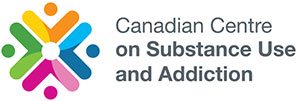We respectfully acknowledge that the offices of CCSA are located on the traditional, unceded and unsurrendered territory of the Algonquin Anishinaabe people, who have been present on this land and its stewards since time immemorial. As a national organization, we also acknowledge that we work on the traditional lands of many distinct nations, including Métis (settlements) and Inuit (Inuit Nunangat, homeland). We are humbled to have the opportunity to be present on these territories.
We pay our respects to and honour First Nations, Métis and Inuit as distinct Peoples and as sovereign Traditional Knowledge keepers. By partnering, listening and engaging during the sharing of Traditional Indigenous Knowledge, history, culture and language, we may begin to understand the meaning of true connection to the earth, air, water, ice and all beings.
In the spirit of reconciliation with First Nations, Métis and Inuit Peoples in Canada, CCSA is committed to contributing to making positive changes in our relationship with Indigenous Peoples and to honour the Truth and Reconciliation Commission of Canada’s Calls to Action and the United Nations Declaration on the Rights of Indigenous Peoples.
Our Process and Organizational Journey
As an organization that conducts science and research, CCSA is dedicated to learning. As a learning organization, we are humbled by how much more we need to learn and understand from First Nations, Métis and Inuit. We hope that through our partnerships and engagement with Indigenous organizations that what we learn can help improve the work we produce.
CCSA is committed to organization-wide learning about racism, colonization and injustices experienced by Indigenous people as well as about reconciliation, accessibility, equity and inclusion.
Through education; guidance from Indigenous partners, Elders and Traditional Knowledge Keepers; and increased awareness, we strive to do better. As a start to our organization’s journey, CCSA has begun several initiatives to work toward truth and reconciliation as well as equity, diversity and inclusion.
Staff Education and Training
CCSA’s goal is to increase our staff’s understanding of the historical and contemporary colonial legacies and practices, and their collective impact on First Nations, Métis and Inuit people and their communities on the land we call Canada.
In consulting with Indigenous advisers, we host an ongoing series of Indigenous Gatherings for staff. These gatherings feature presentations from First Nations, Métis and Inuit speakers and include group activities. These events allow our staff to reflect and then identify actions for reconciliation for themselves and the organization.
Our Indigenous advisers have recommended resources to share with our staff. These include books by Indigenous authors, as well as Indigenous films, websites and learning modules. We hope that these resources will support staff who have personally committed to learning more about racism, colonization, injustices, reconciliation, accessibility, equity and inclusion. We believe this will foster a safe, positive environment at our workplace where such conversations are encouraged and honest.
CCSA’s Issues of Substance Conference
CCSA’s biennial conference, Issues of Substance, always strives to include the expertise of First Nations, Métis and Inuit organizations and communities through partnerships and engagement strategies.
During our Issues of Substance 2023 conference in Vancouver, the work of First Nations, Métis and Inuit experts were highlights of the conference program. These works included:
- First Nations Elder opening the conference with a prayer, traditional song and drumming;
- Métis Kokum Deni speaking at the start of the second day of the conference, sharing about the importance of connectivity;
- Inuit Elder Michael Kusugak delivering the closing keynote, where he shared many Inuit traditions and cultural items;
- Twin Flames being featured as a keynote address on the second day of the conference;
- Poster presentations on Indigenous approaches to healing;
- The conference program being accredited by the Indigenous Certification Board of Canada; and
- Indigenous counsellors and an Elder providing emotional and culturally appropriate health and wellness support for survivors of residential schools, their family members and those experiencing intergenerational trauma.
We have begun planning our 2025 conference. We plan on continuing to nurture these partnership and develop new ones as we move forward.
